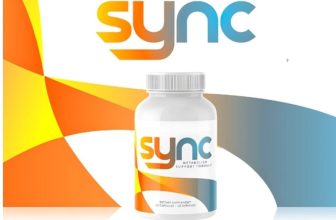Alzheimer’s Dementia Brain Health for memory support

Alzheimer’s disease, a progressive neurodegenerative disorder, remains one of the most significant challenges to public health and individual well-being. With its profound effects on memory, cognition, and daily functioning, Alzheimer’s dementia demands a holistic approach to understanding, prevention, and management. This document explores the multifaceted aspects of Alzheimer’s dementia, delves into strategies for brain health, and highlights memory support techniques to improve quality of life for individuals and their caregivers.

Understanding Alzheimer’s Dementia
Alzheimer’s dementia is characterized by the gradual deterioration of cognitive functions, starting with memory loss and advancing to include difficulties in reasoning, problem-solving, and language. Key pathological features include:
- Amyloid Plaques and Neurofibrillary Tangles: These protein accumulations in the brain disrupt neuronal communication and lead to cell death.
- Neuronal Loss and Brain Shrinkage: The progressive loss of neurons results in reduced brain volume, particularly in areas associated with memory and learning, such as the hippocampus.
- Neuroinflammation: Chronic inflammation exacerbates neuronal damage and contributes to the disease’s progression.
- Cholinergic Deficit: A decline in acetylcholine, a neurotransmitter crucial for memory and learning, further impairs cognitive functions.

Risk Factors and Early Signs
Risk Factors
Several factors increase the risk of developing Alzheimer’s disease:
- Age: The likelihood of developing Alzheimer’s increases significantly with age, particularly after 65.
- Genetics: Specific genes, such as APOE-ε4, are associated with a higher risk.
- Lifestyle Factors: Poor diet, lack of exercise, smoking, and chronic stress contribute to cognitive decline.
- Chronic Conditions: Hypertension, diabetes, and cardiovascular disease are linked to a greater risk of Alzheimer’s.
Early Signs
Recognizing early symptoms can facilitate timely intervention:
- Memory lapses, such as forgetting recent events or appointments.
- Difficulty performing familiar tasks or solving problems.
- Confusion about time or place.
- Changes in mood, personality, or social withdrawal.
Brain Health Strategies
Maintaining brain health is pivotal in reducing the risk of Alzheimer’s and supporting cognitive functions. Strategies include:
1. Nutrition
A brain-healthy diet can lower the risk of cognitive decline:
- Mediterranean Diet: Emphasizes fruits, vegetables, whole grains, lean proteins, and healthy fats.
- Antioxidant-Rich Foods: Blueberries, spinach, and nuts combat oxidative stress.
- Omega-3 Fatty Acids: Found in fatty fish, these support neuronal health.
- Limit Processed Foods: Reduce consumption of sugar, trans fats, and highly processed products.

2. Physical Activity
Regular exercise promotes brain health by improving blood flow, reducing inflammation, and stimulating neurogenesis:
- Aerobic activities, such as walking or swimming, enhance cardiovascular health.
- Strength training builds resilience against age-related muscle loss.
- Mind-body practices like yoga improve focus and reduce stress.
3. Cognitive Engagement
Keeping the brain active through:
- Learning new skills or languages.
- Engaging in puzzles, chess, or memory games.
- Reading, writing, or participating in intellectually stimulating discussions.
4. Sleep Hygiene
Quality sleep supports memory consolidation and brain repair:
- Maintain a consistent sleep schedule.
- Create a restful environment, free of noise and distractions.
- Address sleep disorders such as insomnia or sleep apnea.
5. Stress Management
Chronic stress damages the hippocampus, a critical area for memory:
- Practice mindfulness or meditation.
- Engage in regular relaxation techniques, like deep breathing.
- Pursue hobbies and maintain social connections.
Memory Support Techniques
For individuals experiencing memory challenges, employing specific techniques can enhance daily functioning:
1. Memory Aids
- Use calendars, planners, or digital reminders.
- Keep frequently used items in designated places.
- Employ mnemonic devices or visualization strategies.

2. Structured Routines
- Establish consistent daily schedules.
- Break tasks into smaller, manageable steps.
- Prioritize activities during the most alert times of day.
3. Environmental Modifications
- Minimize clutter to reduce distractions.
- Use labels or signs for navigation.
- Ensure adequate lighting and safety measures.
Advances in Alzheimer’s Research and Treatment
Pharmacological Interventions
Current FDA-approved treatments include:
- Cholinesterase Inhibitors: Donepezil, rivastigmine, and galantamine improve communication between neurons by increasing acetylcholine levels.
- NMDA Receptor Antagonists: Memantine regulates glutamate activity to prevent overexcitation of neurons.
- Emerging Therapies: Research focuses on amyloid-targeting antibodies, tau protein stabilizers, and anti-inflammatory drugs.
- Supplemental Products: NeuroPrime is gaining attention as a dietary supplement designed to support brain health. It contains a blend of natural ingredients aimed at enhancing memory, improving focus, and protecting against oxidative stress. While not a replacement for medical treatments, NeuroPrime may complement existing strategies for cognitive support. Always consult a healthcare provider before starting new supplements.

Non-Pharmacological Interventions
- Cognitive Rehabilitation: Structured programs to improve specific cognitive skills.
- Behavioral Therapy: Addresses mood changes and enhances coping strategies.
- Assistive Technology: Devices and applications that support communication and safety.
Supporting Caregivers
Caregivers play a crucial role in managing Alzheimer’s dementia. Key support strategies include:
- Education: Learning about the disease’s progression and effective care techniques.
- Respite Care: Utilizing professional or community services to reduce caregiver burnout.
- Emotional Support: Joining support groups or seeking counseling.
Community and Policy Initiatives
Public health and policy efforts can address the growing burden of Alzheimer’s by:
- Promoting awareness campaigns to encourage early diagnosis.
- Funding research for innovative treatments.
- Expanding access to affordable care and support services.
- Enhancing training for healthcare professionals in dementia care.

Future Directions
Ongoing advancements in technology and medicine hold promise for improving Alzheimer’s outcomes:
- Biomarker Research: Identifying early indicators of Alzheimer’s for timely intervention.
- AI and Machine Learning: Developing tools for accurate diagnosis and personalized treatment plans.
- Gene Therapy: Exploring genetic modifications to reduce disease risk.
Conclusion
Addressing Alzheimer’s dementia requires a comprehensive, multidisciplinary approach. By prioritizing brain health, leveraging advancements in research, and fostering supportive environments, society can improve outcomes for individuals living with Alzheimer’s and their families. Memory support strategies, combined with proactive health measures, not only enhance cognitive resilience but also empower individuals to lead fulfilling lives despite the challenges posed by this condition.











